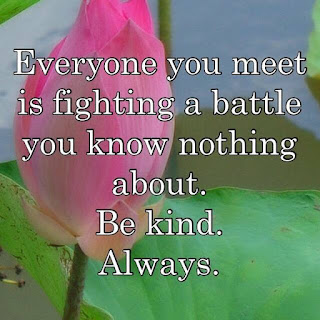One day my friend and colleague, Cherise, loaned me a little blue book, the
Art of Stillness, by Picot Iyer. "You'll like it", she said. I did.
 |
Being still I catch the scent of gum blossoms.
Photo credit: Vittala K Shettigara |
As I read it, and sat with it, I reflected how stillness is something really precious to me, the greatest treasure being when I gain an ongoing sense of stillness, no matter what my activity or what is happening to me or around me.
I practise opening to permanent Stillness. Slowly it is coming.
To write a column like this I need to find stillness so that what wishes to be expressed can make itself heard. So today I have paused, and sat, asking it to come forth. Iyer's thoughts expressed in that little blue book are with me. Stillness is here.
And I recognise what else is here, things that arise through the gateways of my senses. Green tea on the palate. The tinkle of the courtyard fountain. The mid afternoon light a glare through the blinds. The scent of gum-tree blossoms floating in through the open windows.
The loud sounds of excavations across the road as an empty block of land is readied for construction are not disturbing me, they are just there.
As I progressed through Iyer's book he talked a lot about monks going off and spending years in isolation in monasteries and doing nothing. But that is not the life that is available to most of us. Yet I know that those of us who live in the world are not doomed to be caught up in all its motion.
I too love to stop and be quiet. In a few weeks time in early April I will be spending a week in silence sitting with my teacher on retreat. And in June I am offering my students a retreat, partially silent, for three days. Retreat gives us the opportunity to immerse and heighten our sensitivity to the Stillness that is always there. Retreat helps us to carry that flavour of stillness with us back into the whirring activity of everyday life and to continue to experience it there as well.
Iyer also reaches that point in the little blue book, eventually.
"The point of gathering stillness is not to enrich the sanctuary or mountaintop but to bring that calm into the motion, the commotion of the world."
Stillness is a quality of Being Awareness, a vastness that through practice we come to recognise is who we are, as much as we are the body and personality we inhabit or the thoughts and emotions that we experience.
Contentment is also a key component of stillness. When we can be at peace just with what is here, recognising that everything is arising and subsiding in and from a vast stillness that is Awareness, contentment is also present.
Contentment is the second of the internal practices, or niyamas, described by Sage Patnajali as the second limb of yoga. Yoga Sutra II.42 reads"From contentment there flows the most excellent happiness and delight." (Translation Swami Venkatesananda).
When we are not in connection with Stillness, Contentment is difficult to attain. Yet when we begin to practice the mindfulness that leads to Stillness, Contentment also arises. Discontent is a restlessness of mind, body and spirit. As the restlessness is stilled, through our practices of mindfulness, body and breath sensing in movement and in still and silent practices such as meditation and yoga nidra, so too the discontent, and we are content with things just as they are.
 "Everyone you meet is fighting a battle you know nothing about. Be kind. Always."
"Everyone you meet is fighting a battle you know nothing about. Be kind. Always."